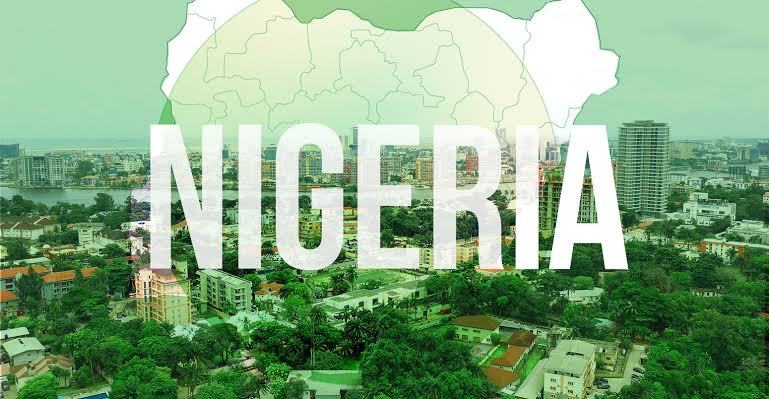The Public Sector Crisis in Nigeria” A Daily Nightmare!

By Ugo Benitez
The inefficiencies plaguing Nigeria’s public institutions are more than an inconvenience. They are a national emergency. From immigration to banks, universities, hospitals, electricity, and law enforcement, Nigerians face a daily struggle to access basic services. The government behaves like it is doing citizens a favour, not fulfilling its duty.
Every day, people wake before dawn, gather documents, pay for transport, and sometimes travel across states just to access services that should be routine. After hours of queuing, they are told, “No network.” Time is wasted. Disappointments, money goes down the drain. Not like its an exception, it is the standard.
Applying for a Nigerian passport is a frustrating and often humiliating process. After paying online and booking an appointment, many Nigerians travel long distances only to find no network, a downed server, or that the officer responsible is absent. Some spend on hotel accommodation or miss work just to chase a document that shouldn’t take two weeks. But most times it takes months. Even more baffling is the repeated biometric capture. Citizens who provided fingerprints and photos a few years ago must do it all over again, unlike in some countries.
The Federal Road Safety Corps reflects this same dysfunction. Applying for a driver’s license can take months. Just for biometric capture, applicants return several times, only to be told that the system is down. In the meantime, officers on the roads confiscate temporary papers and extort bribes from motorists. The agency delays you, then punishes you for the delay.
Banking is another battlefield. Whether resolving a failed transaction, linking your BVN, or requesting a debit card, you are met with long queues, indifferent staff, and repeated system errors. In rural areas, the frustration is even worse. What should take minutes often stretches into weeks. It’s not service, it’s structured stress.
University graduates are trapped in another web of inefficiency. Requesting academic transcripts can take months. Many Nigerian institutions still process transcripts manually. In an age of digital data and cloud systems, this is appalling. In Egypt and South Africa, public universities issue digital transcripts within days. Egypt, with over 110 million people, processes higher education records faster than Nigeria despite similar economic struggles. South Africa, with about 60 million people, got a streamlined university administration through integrated ICT systems. In contrast, Nigerian students miss scholarship and job deadlines simply because their universities cannot send documents on time.
Hospitals, electricity, customs, police, and the courts all reflect a similar breakdown. Public hospitals are understaffed and under-equipped. Patients die from avoidable complications. Electricity is unreliable. The national grid collapses frequently, crippling businesses and schools. Customs officers delay goods unnecessarily, extorting bribes and causing massive financial losses. Courtrooms are outdated and slow. Cases drag on for years. Files disappear. The police is far from being protectors, often extortionists in uniform. “Bail is free” is a joke. Many ordinary citizens are locked up for days while real criminals walk free.
Nigeria’s problem is not just poor network connectivity. It is deep, systemic rot. Institutions are plagued by corruption and cronyism. Jobs go to unqualified relatives instead of professionals. Processes are manual where they should be digital. Most services are centralized in big cities, forcing rural dwellers to travel long distances. Staff are untrained, unaccountable, and often hostile to the public.
Consider countries of similar size and development status. Indonesia, with over 270 million people, handles passports and driver’s licenses through a national online system that cuts processing time drastically. Pakistan has introduced Nadra’s digital ID system, allowing citizens to access multiple services with one ID. Mexico’s government portal centralizes dozens of public services. Brazil, with over 200 million citizens, runs a national digital identity and service portal called gov.br, allowing users to access taxes, health records, vehicle licensing, and education data online. Nigeria, with all its human capital and tech startups, still forces citizens to repeat biometric captures, stand in endless queues, and navigate opaque bureaucracies for the most basic needs.
Even visa applications to countries like Canada are simpler than most Nigerian services. You apply online, capture biometrics once, and it remains valid for ten years. It is smooth, professional, and predictable. Nigeria must take notes, not offense.
In another glaring example of institutional failure, the Joint Admissions and Matriculation Board (JAMB) has admitted to errors that affected students’ performance in the 2025 Unified Tertiary Matriculation Examination. Over 75 percent of all candidates (1.5 million) scored below 200, the average score, considering the exam is graded out of 400. Some affected candidates have threatened to sue JAMB. This is yet another case of inefficiency and carelessness, further exacerbating the frustration Nigerians face in nearly every public service sector. A clear case of anyhowism and failure.
The problem is further compounded by the cost of these errors. Many candidates who will have to resit the exam may need to travel across the country. Imagine a candidate who travelled from Anambra to Kano for a holiday but now must return to resit the exam due to the inefficiency of JAMB. The cost of transport, the inconvenience, and the emotional toll are all borne by the candidates, while JAMB and other institutions remain unaccountable.
This echoes the 2023 INEC fiasco with the iREV system, where similar failures were met with no real consequences, and citizens bore the brunt.
The World Bank’s 2024 Government Effectiveness Index ranks Nigeria 172 out of 193 countries. South Africa ranks 72. Egypt stands at 93. Indonesia is at 72, Brazil at 63, Mexico at 75, and Pakistan at 114, all far ahead of Nigeria. In digital public services, the 2022 UN E-Government Development Index places Nigeria behind most African peers. Nigeria’s internet penetration is 43 percent, yet fewer than 15 percent of federal services are fully online. The cost of these failures is enormous. The IMF estimates Nigeria loses over 1.5 billion dollars annually to bureaucratic delays and inefficiencies.
Unless the Nigerian government decentralizes services, invests in real infrastructure, and enforces accountability, the daily nightmare will continue. Citizens will keep wasting hours, losing income, and being dehumanized by a system that treats efficiency as a luxury. The issue is not that we cannot do better. It is that those in power have refused to.







5vyuet
Let’s keep hope alive
htkm6r